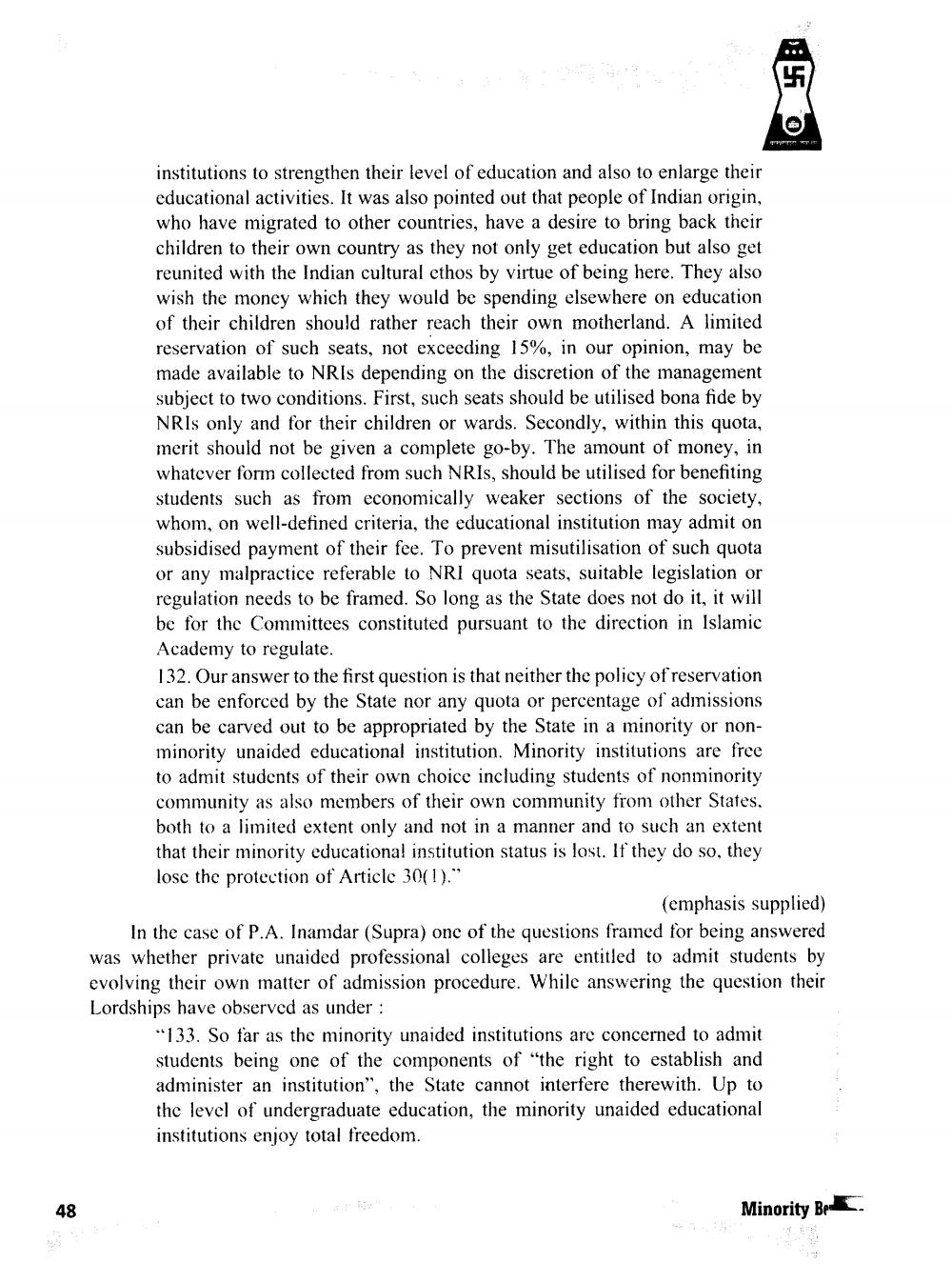________________
institutions to strengthen their level of education and also to enlarge their educational activities. It was also pointed out that people of Indian origin, who have migrated to other countries, have a desire to bring back their children to their own country as they not only get education but also get reunited with the Indian cultural ethos by virtue of being here. They also wish the money which they would be spending elsewhere on education of their children should rather reach their own motherland. A limited reservation of such seats, not exceeding 15%, in our opinion, may be made available to NRIs depending on the discretion of the management subject to two conditions. First, such seats should be utilised bona fide by NRIs only and for their children or wards. Secondly, within this quota, merit should not be given a complete go-by. The amount of money, in whatever form collected from such NRIs, should be utilised for benefiting students such as from economically weaker sections of the society, whom, on well-defined criteria, the educational institution may admit on subsidised payment of their fee. To prevent misutilisation of such quota or any malpractice referable to NRI quota seats, suitable legislation or regulation needs to be framed. So long as the State does not do it, it will be for the Committees constituted pursuant to the direction in Islamic Academy to regulate. 132. Our answer to the first question is that neither the policy of reservation can be enforced by the State nor any quota or percentage of adinissions can be carved out to be appropriated by the State in a minority or nonminority unaided educational institution. Minority institutions are free to admit students of their own choice including students of nonminority community as also members of their own community from other States. both to a limited extent only and not in a manner and to such an extent that their minority educational institution status is lost. If they do so, they lose the protection of Article 30(1)."
(emphasis supplied) In the case of P.A. Inamdar (Supra) one of the questions framed for being answered was whether private unaided professional colleges are entitled to admit students by evolving their own matter of admission procedure. While answering the question their Lordships have observed as under:
133. So far as the minority unaided institutions are concerned to admit students being one of the components of "the right to establish and administer an institution", the State cannot interfere therewith. Up to the level of undergraduate education, the minority unaided educational institutions enjoy total freedom.
48
Minority Bp
.




